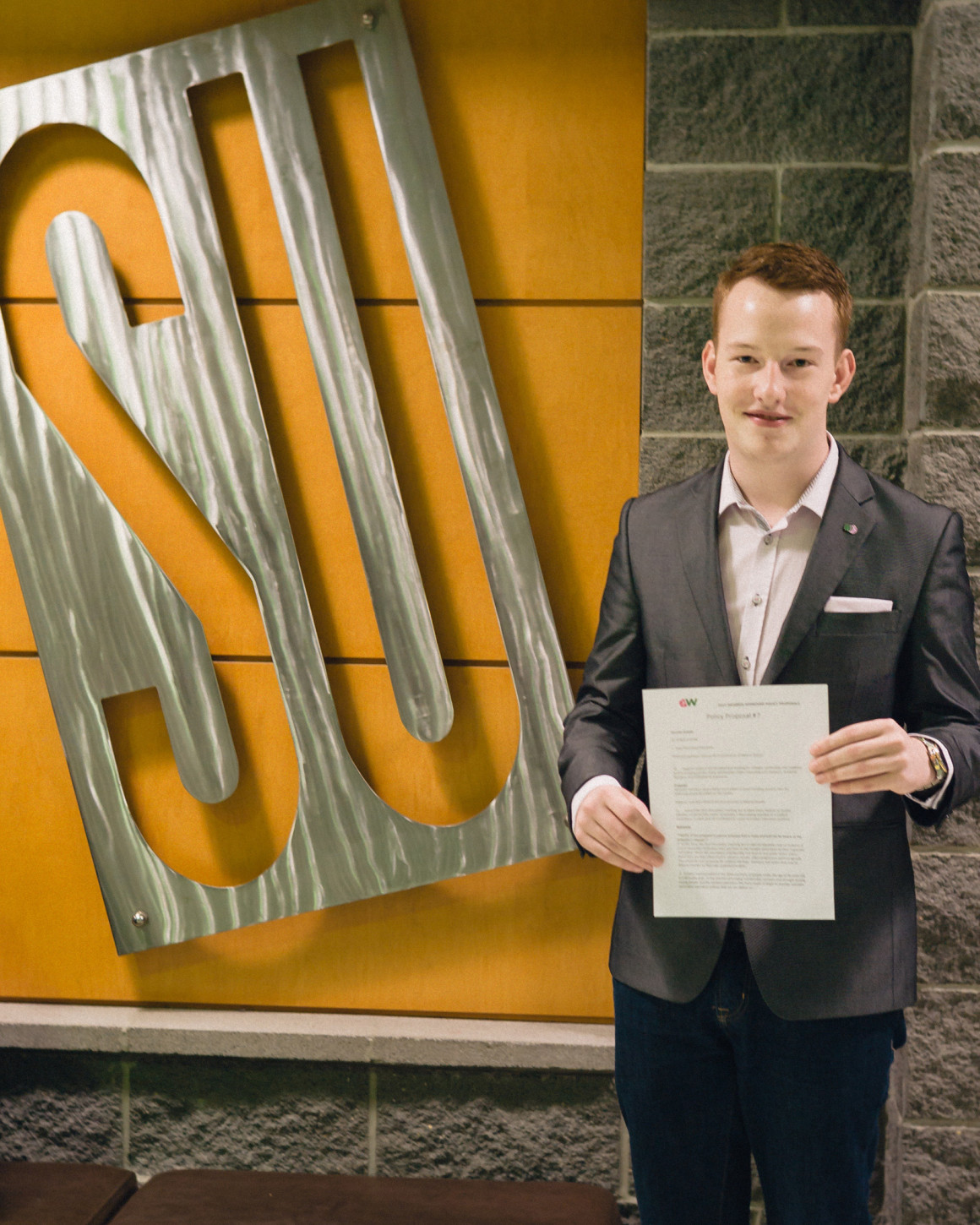
Wildrose policy stirs up debate over students’ union membership
By Kate Jacobson, November 17 2015 —
The Wildrose Party recently passed policy that would make joining a post-secondary students’ union optional. The policy recommends that changes are made to Alberta’s Post-Secondary Learning Act, and was passed unanimously at last weekend’s annual general meeting.
Former Students’ Union science representative and University of Calgary student Keean Bexte wrote the policy proposal. It was cosigned by nine other university students.
Under current provincial legislation, students are automatically made members of their student union upon enrolment and must pay dues. Bexte believes this is a violation of Article 20 of the United Nations Universal Declaration of Human Rights, which states in part that “no one may be compelled to belong to an organization.”
Bexte says his belief in freedom of association motivated him to bring this policy proposal forward.
“I think it will liberate some of those students who are disillusioned with the SU, who don’t necessarily believe that they represent their values,” Bexte said.
Romy Garrido is the vice-president external at the U of C SU and chairs the Council of Alberta University Students (CAUS), a provincial lobby group. She believes the policy will harm students’ unions across the province.
“The policy is short sighted,” Garrido said. “It’s misguided. It doesn’t consider ramifications of voluntary membership.”
CAUS sent a letter to the party ahead of the AGM outlining their opposition to the proposed policy. The letter states that students’ unions provide core services for students, act as non-partisan advocates and are fiscal watchdogs at post-secondary institutions. Garrido is unhappy that CAUS was not consulted on the proposed policy change.
“As the official representatives of students, democratically elected, we find it problematic that there are other students that are saying that this is what students want when we haven’t been asked for our thoughts at all,” Garrido said.
The text of the policy compares student associations to public sector unions, and claims that dues are “often used to advance certain, often progressive, political agendas.”
Garrido thinks students unions are being unfairly targeted by this policy proposal. She compared membership in a students’ union with belonging to a municipality.
“I’m not sure why we are being targeted when there is so-called forced membership of many different entities,” she said. “There are so many other examples where, as regular citizens, in order to be able to participate in programs and services, we pay our dues.”
Garrido thinks the implementation of this policy would be problematic.
“How do we then separate the services from those that are union members and those that aren’t,” Garrido said. “I haven’t seen a plan on how we would go about that.”
Bexte, however, believes the policy would make students’ unions more accountable.
“If there’s a huge exodus of students from these associations, it’s really telling that the students don’t necessarily want these services,” Bexte said. “Giving students the option to opt in or out will create a much more accountable system where students’ unions have to work for the money that they get.”
According to Garrido, student dues account for only 7.7 per cent of the U of C union’s operating budget. Garrido attributed this to the SU’s ownership of MacHall.
“We have the privilege of being successful in our lobbying efforts and having our own building and being able to own and manage that as we see fit,” she said.
If the policy does eventually become law, Bexte doesn’t see it having a big impact at the U of C.
“I can’t imagine it being all too large, seeing as how well run our Students’ Union is,” Bexte said. “For other students’ unions across the province, I couldn’t say the same.”
Garrido, though, is worried about the impact to other student associations in Alberta.
“I think it’s really unfair to look at us and say that because we’ll come out relatively unscratched, you can forget about all the others who have done great work similar to ours.”
